
Cărți de Friedrich Nietzsche

Friedrich Wilhelm Nietzsche (; German: [ˈfʁiːdʁɪç ˈvɪlhɛlm ˈniːtʃə] (listen) or [ˈniːtsʃə]; 15 October 1844 – 25 August 1900) was a German philosopher, cultural critic and philologist whose work has exerted a profound influence on modern intellectual history. He began his career as a classical philologist before turning to philosophy. He became the youngest person ever to hold the Chair of Classical Philology at the University of Basel in 1869 at the age of 24. Nietzsche resigned in 1879 due to health problems that plagued him most of his life; he completed much of his core writing in the following decade. In 1889, at age 45, he suffered a collapse and afterward a complete loss of his mental faculties. He lived his remaining years in the care of his mother until her death in 1897 and then with his sister Elisabeth Förster-Nietzsche. Nietzsche died in 1900.
Nietzsche's writing spans philosophical polemics, poetry, cultural criticism, and fiction while displaying a fondness for aphorism and irony. Prominent elements of his philosophy include his radical critique of truth in favor of perspectivism; a genealogical critique of religion and Christian morality and a related theory of master–slave morality; the aesthetic affirmation of life in response to both the "death of God" and the profound crisis of nihilism; the notion of Apollonian and Dionysian forces; and a characterization of the human subject as the expression of competing wills, collectively understood as the will to power. He also developed influential concepts such as the Übermensch and his doctrine of eternal return. In his later work, he became increasingly preoccupied with the creative powers of the individual to overcome cultural and moral mores in pursuit of new values and aesthetic health. His body of work touched a wide range of topics, including art, philology, history, music, religion, tragedy, culture, and science, and drew inspiration from figures such as Socrates, Zoroaster, Arthur Schopenhauer, Ralph Waldo Emerson, Richard Wagner and Johann Wolfgang von Goethe.
After his death, his sister Elisabeth became the curator and editor of Nietzsche's manuscripts. She edited his unpublished writings to fit her German ultranationalist ideology while often contradicting or obfuscating Nietzsche's stated opinions, which were explicitly opposed to antisemitism and nationalism. Through her published editions, Nietzsche's work became associated with fascism and Nazism; 20th-century scholars such as Walter Kaufmann, R.J. Hollingdale, and Georges Bataille defended Nietzsche against this interpretation, and corrected editions of his writings were soon made available. Nietzsche's thought enjoyed renewed popularity in the 1960s and his ideas have since had a profound impact on 20th and early-21st century thinkers across philosophy—especially in schools of continental philosophy such as existentialism, postmodernism and post-structuralism—as well as art, literature, poetry, politics, and popular culture.


Beyond Good And Evil

Aphorisms on Love and Hate

On the Genealogy of Morals: A Polemic. By way of clarification and supplement to my last book Beyond Good and Evil

Nietzsche, F: Beyond Good and Evil
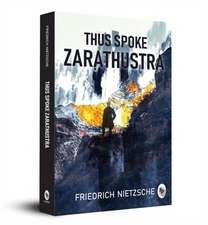
Thus Spoke Zarathustra
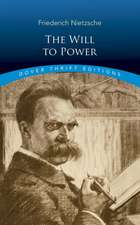
The Will to Power

The Genealogy of Morals
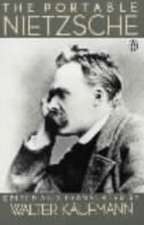
The Portable Nietzsche

The Birth of Tragedy

Why I am So Wise

Also sprach Zarathustra
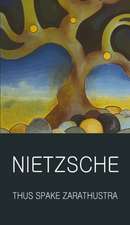
Thus Spake Zarathustra

On the Genealogy of Morality
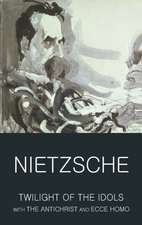
Twilight of the Idols with The Antichrist and Ecce Homo

Human, All Too Human & Beyond Good and Evil

Ecce homo

The Twilight of the Idols and the Anti-Christ
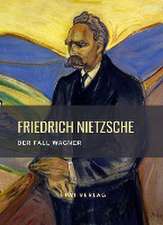
Friedrich Nietzsche: Der Fall Wagner. Vollständige Neuausgabe

Ecce Homo

Basic Writings of Nietzsche

Basic Writings

Man Alone with Himself
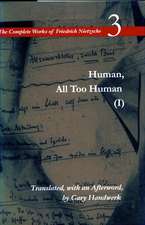
Human, All Too Human I / A Book For Free Spirits: A Book for Free Spirits, Volume 3
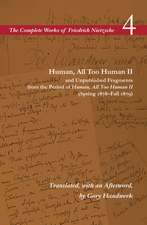
Human, All Too Human II and Unpublished Fragments from the Period of Human, All Too Human II (Spring 1878–Fall 1879): Volume 4

Thus Spake Zarathustra

Human, All Too Human
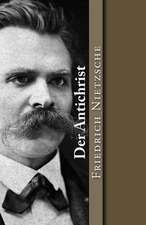
Der Antichrist

The Antichrist

The Use and Abuse of History

Gay Science

The Joyous Science

Nietzsche: The Gay Science: With a Prelude in German Rhymes and an Appendix of Songs
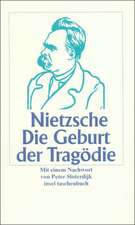
Die Geburt der Tragödie aus dem Geiste der Musik
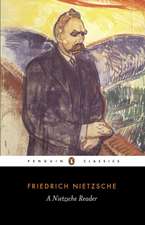
A Nietzsche Reader

Dawn: Thoughts on the Presumptions of Morality, Volume 5

Menschliches, Allzumenschliches

Friedrich Nietzsche - Gesammelte Werke
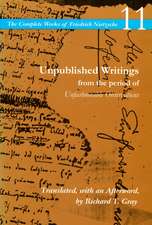
Unpublished Writings from the Period of Unfashionable Observations – Volume 11

Unfashionable Observations: Volume 2
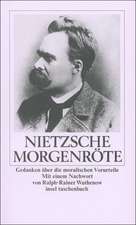
Morgenröte

Twilight of the Idols
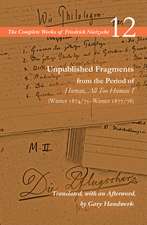
Unpublished Fragments from the Period of Human, All Too Human I (Winter 1874/75-Winter 1877/78)

The Case of Wagner / Twilight of the Idols / The – Volume 9

Thus Spoke Zarathustra (Translated by Thomas Common with Introductions by Willard Huntington Wright and Elizabeth Forster-Nietzsche and Notes by Antho
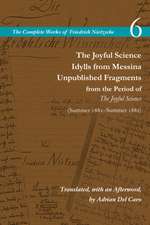
The Joyful Science / Idylls from Messina / Unpub – Volume 6
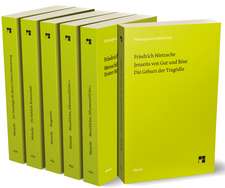
Philosophische Werke in sechs Bänden

God is Dead. God Remains Dead. And We Have Killed Him.

Beyond Good and Evil / On the Genealogy of Morality – Volume 8

Schopenhauer as Educator
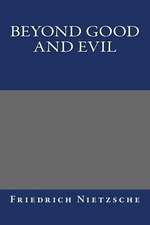
Beyond Good and Evil
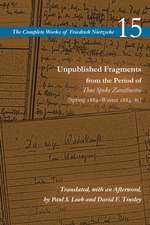
Unpublished Fragments from the Period of Thus Spoke Zarathustra: Spring 1884-Winter 1884/85: Volume 15

Sämtliche Werke
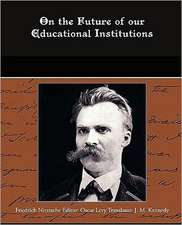
On the Future of Our Educational Institutions: West Indian Fables
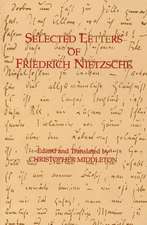
Selected Letters of Friedrich Nietzsche
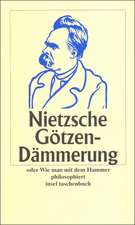
Götzendämmerung oder Wie man mit dem Hammer philosophiert

Writings from the Late Notebooks

Friedrich Nietzsches gesammelte Briefe
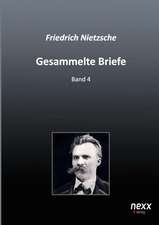
Gesammelte Briefe
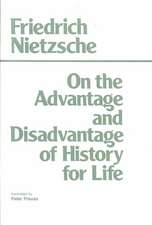
On the Advantage and Disadvantage of History for Life: (Part II of Thoughts Out of Season)
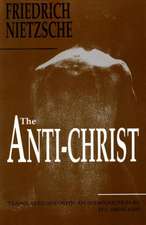
The Anti-Christ
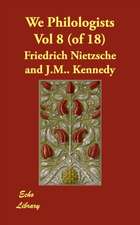
We Philologists Vol 8 (of 18)
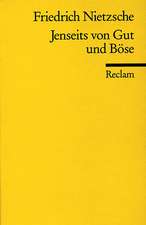
Jenseits von Gut und Böse
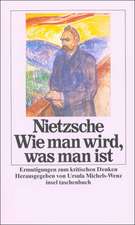
Wie man wird, was man ist
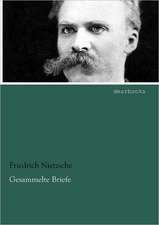
Gesammelte Briefe 4
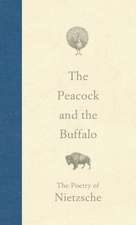
The Peacock and the Buffalo: The Poetry of Nietzsche

Die fröhliche Wissenschaft

Zur Genealogie der Moral
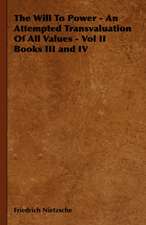
The Will to Power - An Attempted Transvaluation of All Values - Vol II Books III and IV: Butterflies Vol I
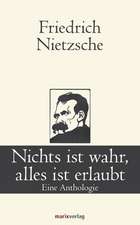
Nichts ist wahr, alles ist erlaubt

The Birth of Tragedy & the Genealogy of Morals

Jenseits von Gut und Böse. Zur Genealogie der Moral. (1886 - 1887): aus: Werke, Abt. 6, Bd. 2
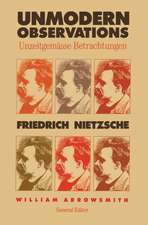
Unmodern Observations (Unzeitgemässe Betrachtungen)
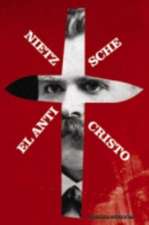
El anticristo : maldición sobre el cristianismo

Die Geburt der Tragödie
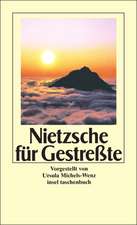
Nietzsche für Gestreßte

Der Wanderer Und Sein Schatten

Die Kunst der Gesundheit
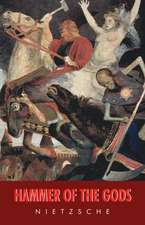
Hammer of the Gods: Apocalyptic Texts for the Criminally Insane
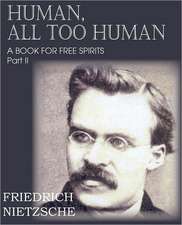
Human, All Too Human Part II

Nietzsche in 100 Minuten

The Pre-Platonic Philosophers

Así habló Zaratustra : un libro para todos y para ninguno
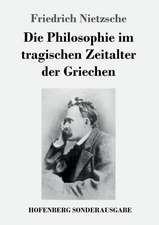
Die Philosophie im tragischen Zeitalter der Griechen

Unzeitgemäße Betrachtungen

Twilight of the Idols; And the Antichrist (Aziloth Books): A Satire on Society and Human Gullibiity (Aziloth Books)

On The Use And Abuse Of History For Life

Nietzsche: Ausgewählte Werke
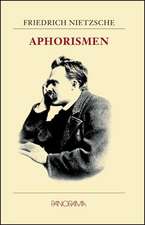
Aphorismen
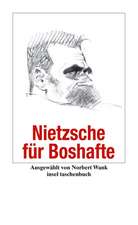
Nietzsche für Boshafte

Gedichte
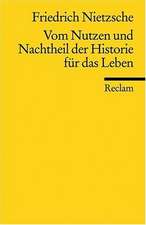
Vom Nutzen und Nachtheil der Historie für das Leben
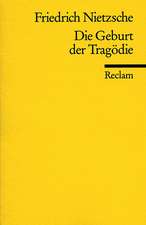
Die Geburt der Tragödie. Oder: Griechenthum und Pessimismus

Morgenröte / Idyllen aus Messina / Die fröhliche Wissenschaft

Der Fall Wagner. Götzen-Dämmerung. Der Antichrist. Ecce homo. Dionysos-Dithyramben. Nietzsche contra Wagner
